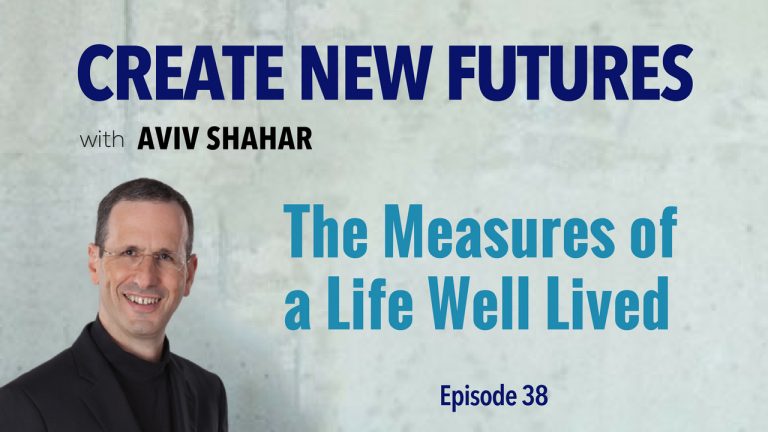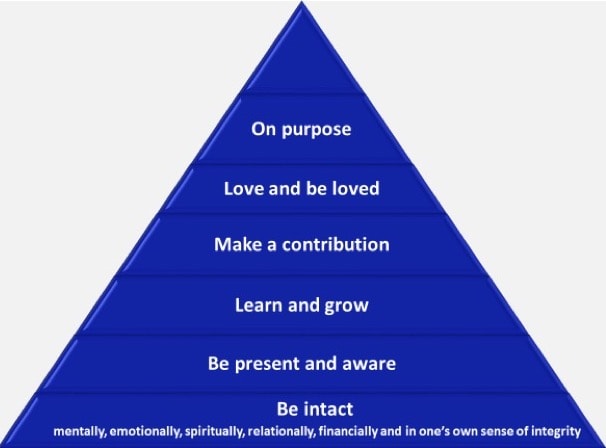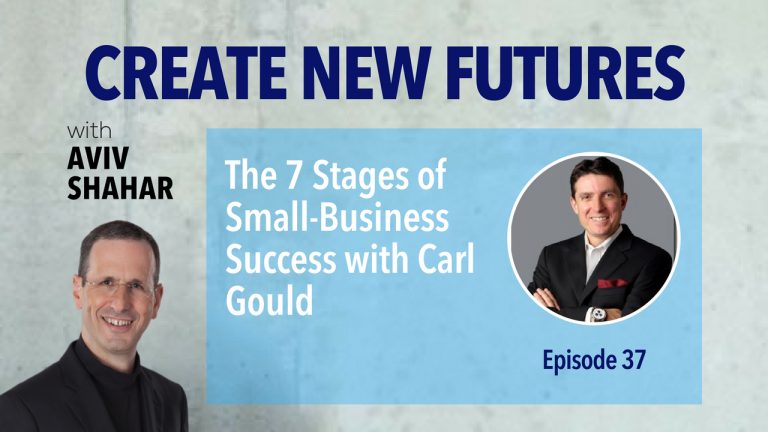Hi Leader,
Recently I was asked this question: "At this point in your life and entrepreneurial journey, how do you feel about the life you've lived and what you've been able to accomplish?"
The question activated a practice that I apply personally and with my clients. I ask myself, "What is the best way to approach this exploration? What pathway or framework can help me encompass the inquiry and/or the issue at hand most lucidly?"
This practice helps me reframe questions, opportunities and challenges in ways that expand my thinking by increasing, sometimes dramatically, the number of possible responses. Reflecting on the original question with gratitude for the opportunities afforded to me catalyzed this framing question: what are the measures of a life well lived?
A framing question is a pathway that enables me to explore the terrain of how I feel. Let me explain. We live in a time where for many, feelings frame their thinking. I propose that you consider and play with reversing that flow: let context and framing shape your feelings.
Reversing this flow is especially pertinent in the longitudinal context of reflecting on your journey. If you are like most people, unless you apply deliberation, your feelings are shaped by what you experienced during your upbringing, as well as by what others feel . This combination turns up in the form of an auto-suggestion about what you "should" feel.
A central aspect of personal growth is breaking free of your conditioning and the auto-suggestion of the herd mentality. I used the framing question about the measures of a life well lived as a fulcrum that catapulted my reflection into a place that's free of those auto-responders. By claiming a clear mental space, one that defies the auto-suggestive responses of what I should or should not be feeling, I already feel awesome.
Research by the social media company Facebook supports my contention that one's moods and feelings are influenced heavily by one's conditioning. The company recently admitted that its findings reveal that passive surfing on social platforms tends to have a negative impact on people's moods and on their feelings about themselves.
Below is what transpired during my reflection on the question that was asked of me. Initially, my response appeared as a fivefold consideration. Upon reflection, as I captured this framework in writing for this article, I added one additional element. Please reflect on these six measures. Then ask yourself how will you evaluate your journey. Your answer will be your own definition of the measures of a life well lived.
The Measures of a Life Well Lived

Listen Here: Episode 38 - The Measures of a Life Well Lived
The first measure is being intact: Do I feel physically, mentally, emotionally, spiritually, relationally and financially intact? Have I lived a clean and decent life? Do I feel comfortable in my own skin? Have I measured up to my own sense of integrity?
My answer: yes, absolutely. There is a quality of wholesomeness and well-being that accompanies the sense of intactness. A goodness that arises from living a life that treats others with decency and is true to its intent, and where the measure of integrity brings a sense of personal dignity. I have written here about the five dimensions of integrity. I still have much work to do inside this framework, especially on dimensions #3 and #5.
The second measure is awareness: Am I present? Have I been fully aware in the variety of situations in which I have found myself? Have I been open to their possibilities, meanings and contexts? Am I living a life of awareness right here, right now?
My answer: I feel that I generally have been present in my life, even if often quite imperfectly. In my 40s, I recognized that I tended to worry too much. Anxious preoccupation with the "what will happen next" is a dangerous conditioning that detracts from the ability to appreciate the current moment and be fully present right here, right now. I also recognized that to be fully present, I must be able to look at a situation unto itself and at the same time see its opportunity inside a greater field of possibilities, to see the single tree in front of me, and concurrently see it as part of the forest. This awareness enables me to respond to opportunities and be present.
The third measure is growth: Am I learning and growing? Have I recognized and applied the learning that was available through the experiences I encountered?
My answer: yes, I feel that I am learning every day. Actually, I've made learning my profession throughout my career. Learning and growth comprise the core of my consulting and coaching business. I probably will continue to grow and learn to my last day. When our son Edan was 6 years old (he is now 30 and the CEO of his own company), I decided that my most important legacy as a parent is not how smart or wise I am, nor is it what I do and or accomplish. I decided that a more important legacy is demonstrating openly and consistently that I am forever a work in progress. In my 30s, through my 40s, and now in my late 50s, I remain a work in progress. I expect to be learning, growing, and evolving into my 70s, 80s and probably my 90s and beyond.
The fourth measure is contribution: Am I contributing?
Do I live a surplus life? Have I generated and contributed a greater return for what was afforded to me in this world, or have I taken more than I have repaid? If being given a life is a form of universal investment, am I a good investment that offers a positive yield? Is this world a better place because I am here?
The contribution question represents the tally of a life. In part, this is beyond our ability to know and or measure. We each leave a mark with the people we touch in ways that we often cannot calculate.
My answer: I feel good about the contributions I've made. I have worked consciously and deliberately to improve the situations of those I've encountered. I hope to be able to continue to generate surplus for many years to come.
The fifth measure is love: Have I loved, and have I been loved? Do I bring joy to the people I love? Do I experience joy and love?
Love is the second most confusing word in the dictionary (God being the first). There are many kinds of love: romantic, erotic, parental, and devotional. Love may be found in the joy of physical exertion, in a breaking out to greater opportunity and freedom, in the state of flow, and in the creative process. Love may take the form of kindness and compassion, or it may open and create space. The highest forms of love come without the need or expectation of reciprocity. You love others for who they are, free of the transactional equation of what you get from them. You can love an idea, a place, or an object for what it represents; and it is simply the state of loving that fills you beyond anything else. The receiving is in the loving, you need no other additional return.
In spiritual terms, the love of a person appreciates and celebrates who he/she is at her/his essence. To truly appreciate the essence of another person, you first must appreciate your own essence, discovering who you are as a human being, over and above what you do and what you have. Joy and pain are two accompanying natures that join the experience of being a spirit inside a body, an invisible presence and essence inside a transitory physical form. You cannot live a full life without experiencing pain. Joy and pain are present together inside love, inside life.
My answer: yes, I have, and I do love and am being loved. Learning to recognize my own essence and the essence in other people (the god-person inside) is a discovery journey I have been on for most of my adult life. I still am on this journey. I cherish the experiences and the relationships that fill my life with love.
The sixth measure is purpose: Am I serving a greater purpose? Am I living into this purpose today? Have I helped the people I met and worked with increase their self-insight, and realize more of their opportunities to achieve to their purpose?
My answer: yes, I am. At the same time, I feel that there is so much more that I can, and want to be able to do. Living into purpose produces a sense of alignment, well-being, and robust connectedness that transforms my experience. By serving a cause bigger than self, I am joined here and now by a grace and benefaction that will last beyond the short time I am here on this Earth. That knowledge adds an inner glow to my life and is a source of my resilient power.
Here is one way to visualize the reflective exploration I described above:

This framework offers a reflective angle and is far from complete. For example, a great many people rightfully suggest that the measure of a life well lived is found in the family and the friendships that one cultivates. I agree. My own experience is that inside family and friendship, and in fact inside a purposeful company and community, we can find a sense of growing intactness and awareness, learning and development, opportunities to make purposeful contribution, find love and be loved, and live our lives with purpose. Ultimately, a life well lived is known in the people you impact and touch.
Now it is your turn. Turn the key. How do you feel about your life? What are your measures for evaluating a life well lived? As a result of your reflection, what will you stop doing? What will you start doing?
The 7 Stages of Small-Business Success with Carl Gould

Listen Here: Episode 37 - The 7 Stages of Small-Business Success with Carl Gould
"Most business leaders are undervaluing the intangibles of their business."
Episode Summary
Carl Gould is a business growth expert who advises organizations on how they can unleash their growth. By the time he was 40, he had already built three multi-million-dollar businesses and after attending a personal development seminar in 1990, he fell in love with the idea of helping others set and achieve goals and work/life balance. He knew right then and there that coaching and mentoring others was going to be part of his life going forward.
Carl has written seven books on business, strategy, leadership, and growth, including, The Seven Stages of Small-Business Success, which I discuss with him in detail in our conversation.
"Fall back in love with your clients, not your products or service."

